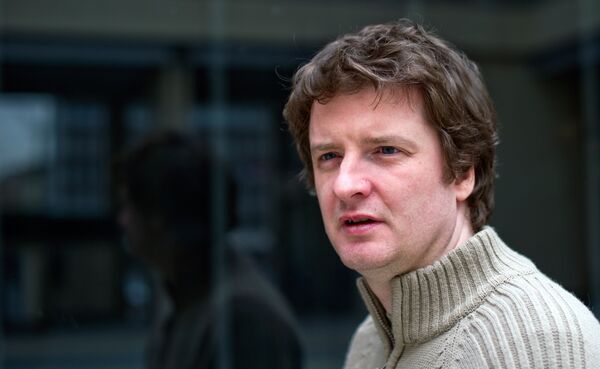I'm in England right now and unable to avoid the omnipresent Olympic Games frenzy. I skipped the opening ceremony, but the hype and the saturation coverage got me thinking about the 2014 Winter Olympics due to take place in Russia's Black Sea resort city of Sochi.
Russia's decision to put forward Sochi as a candidate host city for the Winter Olympics had many folk here scratching their heads in bewilderment. After all, the city is better known for its sunshine, pebble beaches and sea than ski slopes and hip snowboarders. But President Putin, who presented Russia's bid, cleared that apparent mystery up for everyone shortly before the city was awarded the Games.
"Sochi is a unique place. On the seashore, you can enjoy a fine spring day, but up in the mountains, it is winter," Putin told delegates in Guatemala City in July 2007, his presence at the vote ensuring the Games went to Russia.
"I went skiing there six or seven weeks ago. And I know real snow is guaranteed," Putin went on, in an English-language speech as rare as, well, snow on a Sochi beach.
But snow has been the least of the worries of the Russian authorities as the clock ticks down to the first of two major sporting events the country is to host this decade (the other being the FIFA World Cup in 2018).
First off, there were allegations of(and you'll be stunned to hear this) massive corruption in the construction of the infrastructure necessary to host the Games.
A study published by the Russian version of the Esquire magazine in 2010 estimated that a road under construction in Sochi for the Games could have been built using an eight-inch (20-cm) layer of foie gras for the equivalent price tag of $7.7 billion. Critics say the price was inflated by kickbacks and graft, while the Russian authorities defended the exorbitant cost by pointing out the complexity of the construction process (blasting through mountains, etc).
But corruption concerns pale beside two other threats to the Games.
The first is a mounting call for a boycott of the event by Circassians, the ethnic group whose descendents were exiled from their Black Sea homeland in 1864 as the Russian empire expanded in the Caucasus region. The expulsion of the Circassians saw the deaths of around 400,000 people, according to some historians, as they fled Russia in overcrowded boats and died of disease on the shores of the Black Sea. The Circassians are demanding that Russia recognize their forced exile as genocide and have launched a campaign to take Putin's prize away from him. So far, only Georgia (which fought a war with Russia in 2008 and has its own bone to pick with Moscow) has recognized the expulsion as such, but there are still two years to go until the Games and the threat of an at least semi-boycott cannot be excluded.
But the most serious threat to the Games would appear to be (predictably) from Chechen militants. Russia's security services reported this May that they had found arms, including anti-aircraft missiles, in nearby notorious Abkhazia. The Federal Security Service (FSB) said the weapons had been stockpiled for an assault on the Games by Chechen separatist leader Doku Umarov, who claimed responsibility for a 2011 attack on a Moscow airport and a 2010 bombing of the Russian capital's subway system. The FSB said Russia's old enemy Georgia was involved in the plot. The Georgians said the Russians were talking nonsense. But what is clear is that Chechen rebels at the 2014 Games would be sure to spoil the event for pretty much everyone.
After those two threats, one final worry for the Kremlin was highlighted by the Novaya Gazeta newspaper last week. Which big name Russian musician will perform at the opening of the Games? As Novaya Gazeta pointed out, the Kremlin has lost a lot of friends in Russia's art world over the ongoing Pussy Riot court case and it might find it tough to attract worthy opening acts.
Still, at least the Russians are going to send the Olympic flame into space in the run-up to the 2014 Games. So it's not all bad news.
The views expressed in this article are the author's and do not necessarily represent those of RIA Novosti.
*
From lurid tales of oligarch excess to scare stories about Moscow’s stranglehold on Europe’s energy supplies, the land that gave us Roman Abramovich and Vladimir Putin is very rarely out of the news. But there is much more to modern Russia than billionaire tycoons and political conspiracy. Marc Bennetts’ weekly column, Deeper Than Oil, goes beyond the headlines to explore the hidden sides of the world’s largest, and often strangest, country.
Marc Bennetts is a journalist who has written about Russian spies, Chechen football and Soviet psychics for a number of UK newspapers, including The Guardian and The Times. He is also the author of Football Dynamo: Modern Russia and the People’s Game (Virgin Books).
Deeper Than Oil: A Purer Passion for Blood
Deeper Than Oil: Life Gets 'More Better’ for Sveta from Ivanovo
Deeper Than Oil: How Many Lenin Statues?!
Deeper Than Oil: Dead Leaders & Airplane Applause
Deeper Than Oil: Russian Rock Lessons
Deeper Than Oil: Trains, Kittens and Wake-Ups
Deeper Than Oil: The Pages of Wealth
Deeper Than Oil: A Brief Guide to Russian and Soviet Serial Killers
Deeper Than Oil: Russia’s Euro Joy



